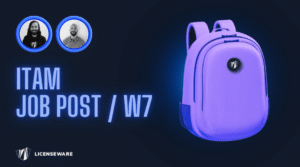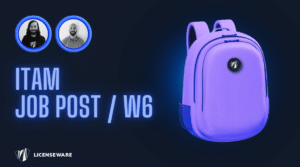Day of Reckoning for the Channel: Microsoft’s ‘Great Squeeze’ Hits, Forcing Industry-Wide Reinvention

The theoretical impact of Microsoft’s strategic overhaul of its Enterprise Agreement (EA) program has finally materialized with brutal clarity. In a stark announcement, London-listed Bytes Technology Group (BTG) revealed its profits are being hit hard, causing its shares to plummet by more than 25%.¹ While the company cited a “challenging macroeconomic environment” leading to deferred customer spending, it explicitly named the other culprit: lower financial kickbacks from Microsoft’s EA renewals.¹ This isn’t just a market downturn; it is the first loud, painful tremor from a tectonic shift, proving that Microsoft’s “great squeeze” on its channel partners is officially underway and forcing a frantic, industry-wide reinvention for survival.
For decades, Large Service Providers (LSPs), also known as Large Account Resellers (LARs), like Bytes, Crayon, and SoftwareONE have been the essential intermediaries for Microsoft’s biggest customers. They managed the complex logistics of EAs, earning reliable, if low-margin, commissions on massive software deals. That model is being systematically dismantled. Microsoft is aggressively taking its largest EA renewals direct, aiming to own the relationship with its most important customers, drive its strategic cloud and AI agenda, and absorb the billions in commissions it once paid out.
The Numbers Behind the Pain
The financial data paints a grim picture for the LSP channel. According to analysis from Microsoft support specialist US Cloud, the commission pool paid out by Microsoft to LSPs globally is evaporating at an astonishing rate: from an estimated $2.5 billion in 2023 down to a projected $583 million in 2025, and dropping to zero by 2026.¹
Conversely, Microsoft’s direct revenue from these same accounts is skyrocketing, from $833 million in 2024 to an expected $2.5 billion by 2026.¹ For Microsoft, a $3 trillion company, reclaiming these commissions provides a tidy boost to its EBITDA. For the LSPs, it represents a catastrophic loss of a foundational revenue stream. As Bytes, which derives around half its gross profit from Microsoft sales, admitted to investors, the impact is severe and immediate, with profits expected to be lower in the first half of fiscal 2026.¹
The Industry Scrambles to Adapt: Pivot or Perish
This existential threat is forcing a painful but necessary evolution across the entire channel. The response from Bytes is a microcosm of the industry’s frantic pivot. The company announced it is restructuring its sales force, shifting from a “generalist model to specialized, customer-segment-focused teams.”¹ The goal, it says, is to “drive sustainable services annuity income growth.”¹ The keywords here are “specialized” and “services.” The business of simply transacting a license is dead; the future is in providing value-added services around the software.
This painful transition is not unique to Bytes. It is the driving force behind the recent blockbuster merger between channel giants Crayon and SoftwareONE.⁴ Facing the same shrinking resale revenues, they chose to consolidate to achieve the global scale necessary to build a dominant, services-led organization. That merger was a proactive move to build a business model fit for the future, a future where software licensing is increasingly a direct vendor-to-customer relationship. Bytes is now being forced down the same path of internal reinvention.
The strategy is clear: if you can no longer make money on the transaction, you must make money around it. This means becoming indispensable experts in cloud migration, cloud cost optimization, security implementation, and AI readiness consulting. The value proposition is no longer the license, but the expertise to deploy and manage it effectively.
The Customer Loses a Guide
While some may have little sympathy for middlemen losing their cut, there is a significant downside for customers. As Mike Jones at US Cloud noted, LSPs have traditionally played the role of a “trusted financial advisor” for complex software estates.¹ They provided a layer of expertise and advocacy. Now, customers are being told to “work directly with Wall Street,” losing that advisory relationship.¹ While dealing directly with Microsoft might streamline some processes, it also means navigating the vendor’s immense complexity and powerful sales agenda without an experienced guide in their corner.
The message from Microsoft is unequivocal: the channel’s role has changed forever. The recent financial turmoil at Bytes is the clearest evidence yet that the era of the high-volume software reseller is over. The survivors of this great squeeze will be those who successfully transform themselves from transactional partners into integrated technology service providers. For everyone else, the clock is ticking.
Sources
- The Register, Microsoft’s ‘great squeeze’ on reseller channel is starting to bite (July 24, 2025) https://www.theregister.com/2025/07/24/microsofts_great_squeeze_on_reseller/
- Bytes Technology Group PLC, Trading Update (July 24, 2025) https://www.bytesplc.com/investors/regulatory-news/
- US Cloud, Microsoft EA Shake-up: LSPs to Lose All Commission Revenue by 2026 (June 10, 2025) https://uscloud.com/blog/microsoft-ea-shake-up-lsps-to-lose-all-commission-revenue-by-2026/
- SoftwareONE, SoftwareONE and Crayon to merge to create a leading global Software & Cloud and Technology Services provider (April 15, 2025) https://www.softwareone.com/en/media/stories/softwareone-and-crayon-to-merge










